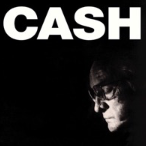All Activity
- Past hour
-
Biggest regret was probably getting married too young. Neither of us wanted kids, we always kept our finances totally separate, but being labelled "married", we both stuck around in a decaying relationship far longer than if we were just "partners". Now I think unless there's a practical reason to get legally married (kids, some financial/tax/citizenship angle), there's no real benefit. Looking forward the next ten years, I'm in my mid thirties and so these are probably the last years I'll have to be fully physically capable. I imagine in my 50s I'll have to tune it down a bit, so I aim to travel and have as many physical experiences (skiing, climbing, etc.) as possible. Although I see some old guys on the chair lift in their 70s, still ripping it. And the older guys posting here about their climbs to Everest and such...it gives me hope!
-
Avoid them, ignore them, or if confident enough, take the other side of them. Most obvious example is related to stuff that looks “expensive”. If I’m looking at something and see the PE I can just laugh and go “nice Greg. Excellent proprietary work there. Definitely arriving at a different conclusion than every other jerk off with screen access!”. At which point I’ll look for other more unique analytical angles, or simply move on. Overall biases are an asset because you know this is often prevailing sentiment and if you can manipulate that you’re already going against the consensus
-
I think the best thing that you can do is be aware of it and think about it when you see it pop up. I have that anchoring bias with price too, but sometimes I start out with a blank piece of paper and say "now it's earning x and buying back stock. why isn't a buy at this price." It's what helped me buy more STNG last year at $40, when I had paid $12 a couple of years before (now it's $82), or bite my lip and pay $50 for JOE when I paid $15 for it earlier. Another common value investing bias I have is selling too early because it reaches a price I wouldn't pay. But when I look at things that I've passed on because they were too expensive, and if I had owned them I would have sold, it's a weird revelation. For instance, I recently bought MSCI which had always looked too expensive to me. But, even after the recent selloff, it has compounded at almost 20% a year since it went public. The safeguard I put in place is that I can buy anytime, but to sell after earnings come out. If it's not after an earnings report, then it's just responding to price fluctuations, not fundamentals about the company. One that I'm consciously working through now is a variation on confirmation bias. There was an experiment in horse betting where professional gamblers were given a certain amount of datapoints (10?) and told to bet on some horse races and give their confidence level. The data included things like past speed at races, number of races in the past month, success % of the jockey etc. Chance would predict a 10% success level, but they managed 17%, so the data was useful. When they gave them more and more datapoints, the success level stayed the same, but their confidence in the bet often doubled or tripled. I have a 3% position in CPNG and a 1% position in ATEX. As I seek out more and more info on these, I'm tempted to go bigger because I feel like I've got a handle on it. But I'm reluctant to go much bigger on them because I think my initial assessment about the confidence in the outcome is correct. More data makes me feel more sure about it, but nothing about the fundamentals, or the competitors will change because of my confidence.
-
coffeecaninvestor started following Biggest regrets of the older posters here?
-
Biggest regrets of the older posters here?
coffeecaninvestor replied to yadayada's topic in General Discussion
I wish I had taken better care of my body, and mind in my 20's. I drank way too much, slept too little, and ate like shit. Now that I am healthier I am much more productive and have a much better mind set. I'd also consider alternatives besides college. I was good at it, but did not enjoy it. I didn't put effort into getting scholarships, studying for SAT's, or going to the best college to fit what I wanted to do. If I had to do it over again I would put 110% effort into going to college or not at all. Going half heartily just gets you a huge pile of debt, and a really rough start to your working adult life. I probably won the lottery finding the right partner in college. Having a spouse that has similar views money, kids, life, politics, and religion makes a huge difference. I'd highly recommend people spend more time figuring this out. - Today
-
As the title above says, I wonder how ya'll handle your own investing biases? What measures you routinely implement and how you deal with it on a recurring basis? Mine I have a bad anchoring bias before and won't add to a position until it reaches to my cost basis but have learned throughout the years that adding to my winners has done well than averaging down to my losers. If the business keeps executing well and exceeded expectations, why not water the flowers more? I'm curious as to what others do and also want to learn from the veterans here. Cheers!
-
I’d like to know more about this, as I work in tech and have the opportunity to re-tool and triple my salary. I love my present job (over 20 years here) but I cannot shake the feeling that the world is shifting and I’m being left behind. For example, with a low mortgage rate and stupidly high home prices, I am stuck. It seems you are making three main complaints: 1. not enough time with family 2. boss is an asshole 3. Not enough time investing. And one benefit: 4. higher pay. Would you have stayed if they replaced your boss with a nice person? Would you have stayed if they doubled your salary? Would you have stayed if they let you spend 1.5 hours per day investing while at work?
-
The John Brooks book covering that era "The Go-Go Years: The Drama and Crashing Finale of Wall Street's Bullish 60s" is great although was clearly written in a different era.
-
Thank you @oscarazocar
-
Thank you @gfp
-
Insurance Brokers (MMC, AON, AJG, WTW, BRO)
oscarazocar replied to tnathan's topic in General Discussion
Dataroma has a good search site for insider buys that shows a running list of form 4 info and you can filter for various things. https://www.dataroma.com/m/ins/ins.php?t=m&po=1&am=10000&sym=&o=fd&d=d -
The point is to look at all of the Form 4's for purchases every day. That is the way you come across things you don't specifically know to look for in the first place. I've been doing it for a while, so I primarily use this old website because that is what I am used to: https://www.insider-monitor.com/insider_stock_purchases.html (on the above site, you click the date of the filing to get to the source document at sec) Most people these days use http://openinsider.com dataroma has some insider purchase information at the bottom of the home page but it is only purchases on "guru" stocks or whatever they call it. Over time you will learn to read the filings and understand which are meaningful and which are just share grants, option exercises, people like Horizon Kinetics / Murray Stahl who buy the same securities every single day, CEF arbitrageurs, etc..
-

Biggest regrets of the older posters here?
Spekulatius replied to yadayada's topic in General Discussion
Glad this thread was resurrected. The post form @rukawa contains timeless wisdom. I have found all of what he wrote to be true. -
Biggest regrets of the older posters here?
nsx5200 replied to yadayada's topic in General Discussion
Wow. I was trying to start a new thread, and found this instead, and thought it's an appropriate place to revisit this, seeing the OP was started about a decade ago. This is essentially asking the same question, but a slightly different take: Now that you've 'made' it (however you want to define it), what would you wish you had done when you were younger in regards to making spending/savings tradeoffs? This assumes when you were younger, you had to trade off spending less to get more saving. Was it worth it 10-20-30+ years later? If you were younger, what would be worth robbing the future self to pay your current self, or the opposite, what should you have gifted your future self by depriving your current self? I'll start with some of mine: No regret: 'Splurging' on trips traveling with my wife pre-kids. So much fun. Was able to do occasional long weekend trips to Europe, and splurged on more exotic cruises that checked off so many things on the list. The small regret is probably not doing a bit more. No regret: Small splurging of time and resources on the little ones. Spend to make sure things are done right. So so worth it when they're young. Regret: Not learning about health and the forces driving it from big sugar/processed food/farm until it's harder to fight it with more exercise and better diet through higher quality but more costly food. Regret: Not discovering meditation earlier. Could've gone through a significant chunk of my life less angry, and but it does cost time. No need to spend for some fancy app/class but do need to be consistent to really make a difference. To me, this was one of the many significant life-changer for me. Once practiced past a certain point, it's bliss on tap (amongst other benefits). -
Isn’t an appropriate benchmark the Nasdaq 100 then?
-
78% of Americans live paycheck to paycheck
schin replied to blakehampton's topic in General Discussion
Buffett was right that luck of being born in the right country or migrating to the right country is a huge factor. In terms of saving, it's almost like playing a video game and your power level is low. You try to find some power-up or something to get more time. I know it's not always easy, but I would assume most people would have that same feeling of nervousness without a buffer. I either have to work harder or take on more shifts...Or make sacrifices to start the snowball again. I know someone will point out the extreme cases of large families out of wedlock or mentally challenged, homeless people... but, that must be 10% of that 78%. For most people in the 78%, are they really focused on needs versus wants (frivolous consumption) that they can control? -

78% of Americans live paycheck to paycheck
Parsad replied to blakehampton's topic in General Discussion
There is nothing new in what you said. That's the way it was 20 years ago, 50 years ago, 100 years ago. The fact that today's entrepreneur can access and sell to global markets instantaneously and with far less resources, rather than simply in their community, opens up the sheer size of the market available. And that market will continue to get bigger as more and more people enter the middle class. China, Europe's and North America's massive middle class, combined with burgeoning middle classes in India, South America and eventually Africa, will continue to increase the size of the market. Cheers! -

78% of Americans live paycheck to paycheck
Parsad replied to blakehampton's topic in General Discussion
The thread is about a lack of savings...not getting wealthy. There are people in very poor countries with low incomes per capita saving a greater percentage of their income than than North Americans. Savings rates are very indicative of economic output long-term from countries. Cheers! -
It's weird that his fund is so heavily in technology given how it worked out for his dad. His Dad was the Cathy Woods of the 1960s. He ran a go-go tech momentum fund and was called "the next Warren Buffett", which everyone knows is the kiss of death. A couple of years later his fund was down 90% and he was running a soup can company. I'm totally serious about that. His dad also had nine lives and built up that can company and used it to get back to wall Street by using the money from profits to buy Primerica. So I don't know what the lesson is there. It's either a roadmap or a cautionary tale depending on whether you stayed until the movie.
-
@gfpthank you. Do you track form 4 for the businesses you are interested in? Are there places to look up for all form 4 filed each day?
-
@ValueMavenThank you. How do you find these preferreds? Do you look them up for the businesses that you track? Is there a place (e.g. like EDGAR) to look them up?
-
Not worth the headache if you can find a reasonable paying job with better life/work balance. You only live once...do you want to spend it making extra money but for an ungrateful boss at the expense of family and friends? I think you made the right decision. Now refocus some of that energy at building your investments to give you the "eff you" freedom that you want. Cheers!
-
Insurance Brokers (MMC, AON, AJG, WTW, BRO)
coffeecaninvestor replied to tnathan's topic in General Discussion
I’ve basically have worked in insurance for my entire career so far and it’s always amazed me how well these brokers get paid, and how little disruption there is.. it’s pretty rare to even see a change in broker. From what I can tell it is mainly relationship driven which is hard to for me to wrap my head around moat wise. I should probably take a hint and just buy some brokers, and add to them over time.. I missed Copart when I worked at The Hartford and used their services on a daily basis. It would have compounded at a 30% CAGR over the past decade…let’s not compound the stupidity of missing two great businesses. -
No, not really. Santa Cruz is really spread out compared to most cruise ship stops so pretty easy to not be on top of people. Especially if you get a few blocks out of port. I hit the tourist sites in the morning and took the bus up to the infamous airport, then spent the afternoon at a cerveceria before hopping back on the boat.
-
Where are you going.. (Travel Thread)
Whensthepaintdry? replied to Longnose's topic in General Discussion
As someone whose doesn’t like flying much that wasn’t the best search result to see pop up at first. What a crazy series of events! Absolutely tragic. Did you think the cruise ships made it feel overcrowded while you were there? -
Just spent the day in Santa Cruz de Tenerife on a stopover during a transatlantic cruise but I liked it. Easy to get around via the bus/tram system they have there. Assume you'll fly into the south airport and spend most your time riding Mount Teide. Also if you have any interest in aviation, the north airport was the site of the worst disaster in aviation history.



